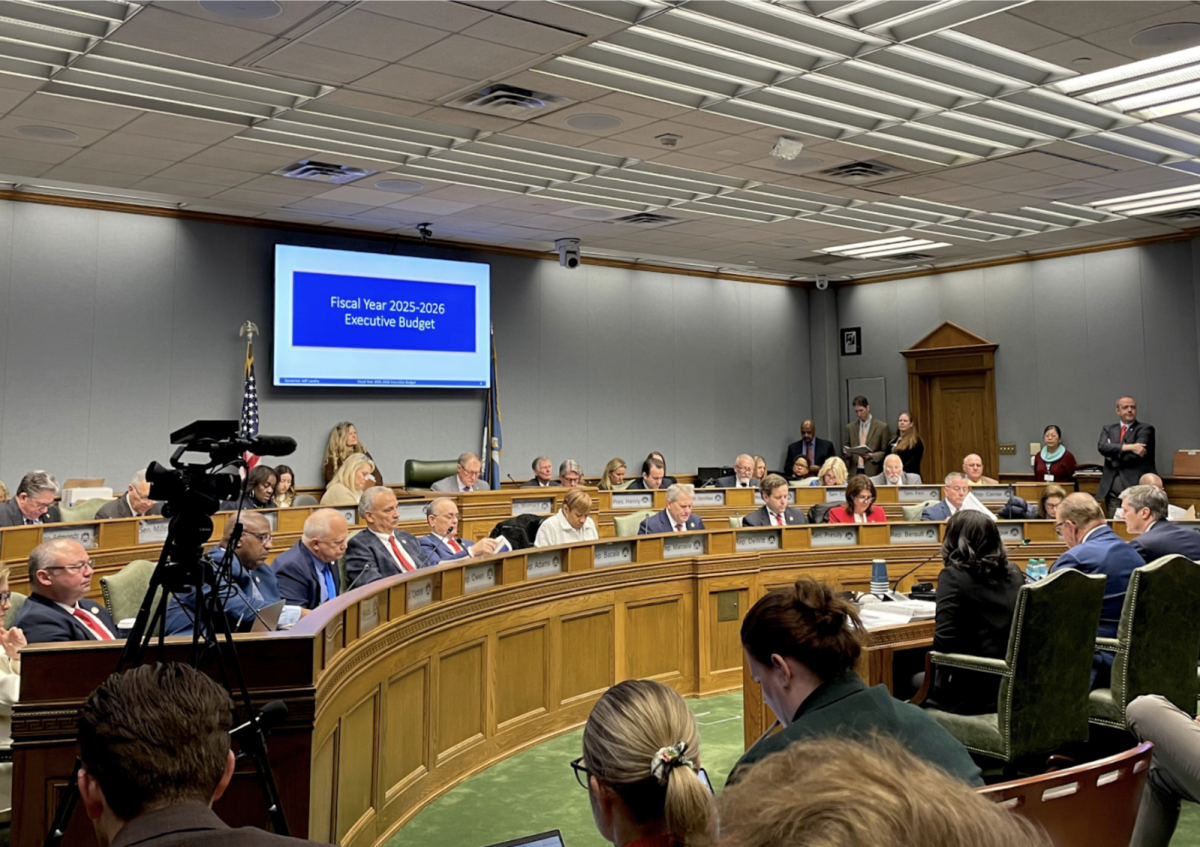As students return to campus to face finals, state legislators are flocking to the State Capitol to deal with a $1.6 billion budget shortfall.
The battle to fill that gap has considerable implications for students, who could face increased tuition and fees and a radically changed system of higher education.
The state constitution requires legislators to pass a balanced budget in this year’s regular session, which began Monday.
The Legislature will not build a budget from scratch. It will modify Gov. Bobby Jindal’s executive budget, proposed earlier this year.
Jindal’s proposed budget keeps higher education funding the same this year as it was last year. University administrators have applauded this fact after months of dire predictions about university funding.
Still, Jindal’s budget must be approved by the Legislature. In fact, the executive budget hinges on several key funding mechanisms that don’t currently exist and would require legislative approval to take effect.
If these proposals are not approved, holes would materialize in the budget that could begin to affect higher education, leading to further cutbacks.
Many of these proposals fill funding gaps using university “self-generated funds” — the majority of which are tuition and fee increases for students.
The bill that would most impact students’ pocketbooks is House Bill 448 by Rep. Hollis Downs, R-Ruston, which would increase the full-time tuition cap from 12 to 15 hours.
Currently, any student taking more than 12 hours is considered “full-time” and pays a flat rate. Jindal’s proposal would allow universities to increase the tuition cap from 12 to 15 hours, increasing tuition costs for students taking 15 hours.
The increases would be covered by TOPS, but out-of-state students and those not on TOPS would foot the bill.
Another bill that would increase costs for students is House Bill 97 by Rep. Frank Hoffmann, R-West Monroe, which would increase the operational fee students already pay.
Created in 2004, the fee cost 4 percent of tuition, or $80 for LSU students. Hoffmann’s bill would index the fee to current tuition costs, increasing it from $80 to about $115 for LSU students.
Other bills would not impact student costs directly but would restructure the state’s higher education funding and administrative systems.
Most notable among these is House Bill 390 by Rep. Jane Smith, R-Bossier City, a constitutional amendment that would dedicate money to fund TOPS.
The money would come from capping the Millennium Trust Fund, which is fed with funds from the state’s infamous 1998 Tobacco Settlement, at $1.38 billion. All money the MTF earns past that cap would go to TOPS.
Jindal’s budget removes general fund money from TOPS to finance other parts of the budget, counting on the new dedicated revenue to fill the hole.
Since HB 390 is a constitutional amendment, it will require a two-thirds vote of the Legislature and a popular vote to pass.
If the amendment fails, TOPS will face a funding hole. Jindal’s administration has vowed to fully fund the wildly popular scholarship, which means money will have to come from some other part of the budget.
Another bill, Senate Bill 50 by Sen. Butch Gautreaux, D-Morgan City, would cap TOPS awards, meaning the award might not cover all tuition costs — especially not for students attending more expensive universities like LSU.
Other bills would restructure higher education management boards throughout the state. SB 183 by Sen. Conrad Appel, R-Metairie, would implement a controversial proposal to merge Southern University-New Orleans and the University of New Orleans within the University of Louisiana System.
That proposal, a result of a Board of Regents study, has earned Jindal’s support.
It has incited widespread criticism from SUNO supporters and members of the state’s Black Caucus, who have said the merger would imperil SUNO’s Historically Black College or University designation.
But other bills might get rid of the University of Louisiana System entirely — along with all the other higher education management boards.
HB 391, sponsored by Speaker of the House Jim Tucker, would abolish the entire system of higher education management boards, from the Board of Regents down to individual system boards like the LSU System.
The state’s public higher education systems would then all be lumped under a new “Louisiana Postsecondary Education Board of Trustees.”
One final bill unrelated to the budget would allow concealed firearms on campus.
HB 413, by Rep. Ernest Wooten, I-Belle Chasse, is the representative’s annual attempt to pass such a law.
____
Contact Sydni Dunn at [email protected]
Budget battle takes center stage in regular legislative session
April 24, 2011






